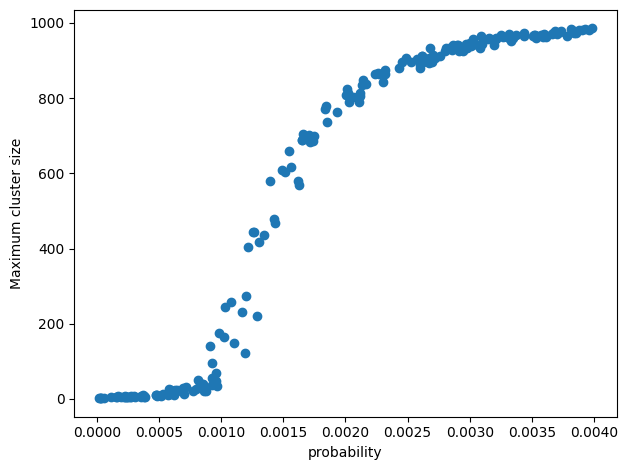グラフ理論とネットワークモデル
Contents
グラフ理論とネットワークモデル#
using PyCall, PyPlot, Random, ProgressMeter
nx = pyimport("networkx")
PyObject <module 'networkx' from 'C:\\Users\\yamta\\miniconda3\\lib\\site-packages\\networkx\\__init__.py'>
Watts-Strogatz small-world graph#
figure(figsize=(12, 2))
for i in 1:5
subplot(1,5,i)
G = nx.watts_strogatz_graph(n=50, k=5, p=0.25(i-1))
nx.draw_circular(G, node_size=10)
title(L"$p=$"*string(0.25(i-1)))
end
#tight_layout()

Erdős-Rényi graph#
figure(figsize=(12, 2))
for i in 1:5
subplot(1,5,i)
G = nx.erdos_renyi_graph(n=20, p=0.02(i-1))
pos = nx.spring_layout(G, k=0.4)
nx.draw(G, pos, node_size=10)
title(L"$p=$"*string(0.02(i-1)))
end
#tight_layout()

N = 200
num_node = 1000
probs = 4*rand(N)/num_node
max_components = zeros(N)
@showprogress for i in 1:N
G = nx.erdos_renyi_graph(n=num_node, p=probs[i])
max_components[i] = maximum([length(component) for component in nx.connected_components(G)])
end
scatter(probs, max_components)
xlabel("probability")
ylabel("Maximum cluster size")
tight_layout()


